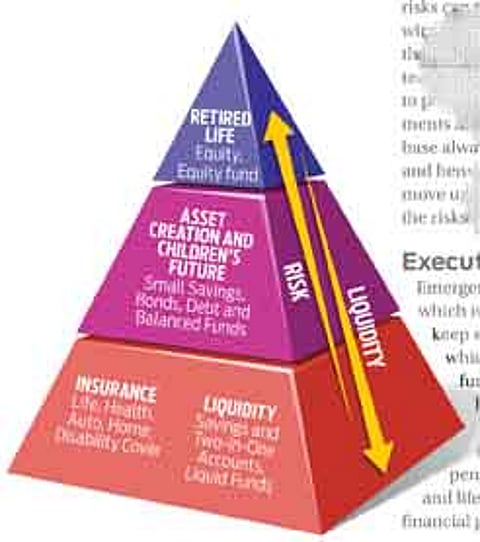In this edition, we are addressing My Plan in a different manner because in recent months, readers have been asking for a framework on which the plan is built. First of all, financial planning involves having individual plans for various components of finances like savings, investments, taxes and retirement. For those who are slightly older or have a lot of money that needs to be distributed, an estate plan should also be in place early on. What you need to remember at any given point is that a financial plan is not a document with unlimited validity; it needs to be updated as you grow.
A Perfect Plan
Life always carry various twists and turns; personally as well as professionally. Thus regular update in financial plan is necessary to achieve the targeted goal.
You need to update your financial plan because circumstances in life keep changing—starting a career, going the family way, career development, pre-retirement and eventually, retirement. For instance, you may have decided to buy a house five years from now, only to discover that your double income home is turning single income for an indefinite time, reducing your savings and borrowing capacity to fund the house. This effectively means you may have to revisit your plan to buy a house and defer it for some time.
Pursuit of financial goals
You need money to achieve your financial goals. How much money you have depends on your ability to control expenses, including outflows like loan repayments even as you invest what you save. Expenses can be controlled if you maintain a budget where you record the use of income for a particular period, say, a month. Budget informs as to where you are faltering. For instance, in a particular month, you might fall short of cash. Information from the budget you have drawn up might tell you that you had spent more on dining out.

Often, budgets give you information like this that helps you manage your expenses, and modify expenditure and financial plans. And, with expenses in check, you can save more consistently. At this stage, you should understand the inter-relationships among income, expenses, assets, liabilities and wealth. Next, acknowledge the relation between risk and reward, and your comfort with how these two are related. This, in simple terms, is your risk appetite and you need to know its limits as it could otherwise result in choice of wrong financial instruments.
While everyone loves to earn the highest returns, the fact is that the higher the predictability of return, lower the return. The other fact is that the lower the levels of risk, the lower the returns. However, what is misunderstood is that the higher the risk, the higher the returns; it could also result in a situation when high risks can turn into negative returns, wiping your investments. Understand the wealth pyramid, which is a time tested concept with the objectivity to place popular investment instruments according to their returns. The base always signifies more stability and hence, lower returns. As you move up to the apex of the pyramid, the risks and returns increase.

Executing the plan
Emergencies are unannounced, which is why it is necessary to keep some money stashed safely, which is called an emergency fund, for taking care of routine household expenses for a few months. Likewise, protect yourself and your dependents with adequate health and life insurance. To achieve your financial goals, you need to put your savings into instruments that appreciate in value. Once you know your risk appetite, you know which instruments to invest in. When investing, never forget to diversify—spread your money across different asset classes like equity and debt.
Investors who succeed do so because they are disciplined and stick to a plan. For instance, if they have invested in a mutual fund for five year tenure, they stick to it than get flippant with interim market movements. Also, they are on top when it comes to following fund performance—they exit a fund when it underperforms or when they achieve their goals. Tracking is very important and it should be done at least once a year to check the progress of your investments and your financial goals; you will see your plans materialising.